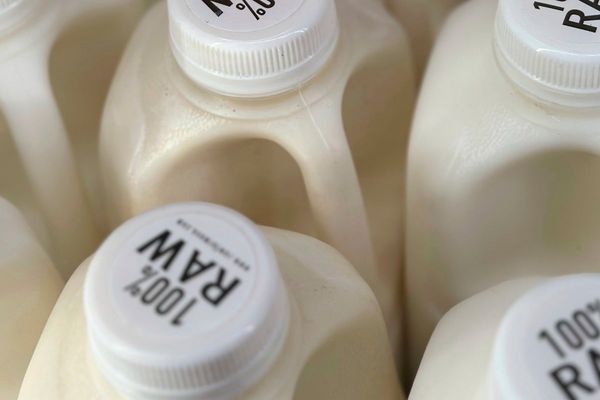WASHINGTON _ The Trump administration Tuesday forged ahead in what one analyst called "a complicated chess game" of handing more of Venezuela's assets in the United States over to its interim president, seeking to tighten the economic stranglehold on the embattled government of Nicolas Maduro.
Washington worked furiously this week to isolate Maduro and allow National Assembly leader Juan Guaido, internationally recognized as the interim president of Venezuela, to control the nation's vital oil trade that supplies nearly 6,000 U.S. gas stations under the Citgo brand.
The State Department certified that Guaido has authority to control all Venezuelan government bank accounts in the U.S. financial system, giving him access to any cash or gold Venezuela may be holding in U.S. banks. Last week, the Bank of England denied Maduro permission to withdraw more than $1 billion in gold Venezuela holds there, noting that the U.K. no longer recognizes him as the country's head of state.
Just how much U.S. banks or the Federal Reserve hold of Venezuelan money was unclear.
"We do not comment on individual account holders," the Federal Reserve of New York said in a statement.
The move came a day after the Treasury Department issued new sanctions against Venezuela, the fourth-largest supplier of foreign oil to the United States. It ordered a phased reduction of oil imports from the state company, Petroleos de Venezuela S.A., and froze all of PDVSA's assets in the United States.
The White House said Tuesday it is "confident that energy markets will remain well-supplied despite reduced imports of Venezuelan oil."
At stake is Venezuela's crown jewel in the United States, Houston-based Citgo Petroleum Corp., a refiner, distributor and marketer of petroleum products. Venezuela sends 4 out of every 10 barrels of oil it produces to the United States, nearly all of it commercialized through Citgo.
In Caracas, oil minister Manuel Quevedo, who is also president of PDVSA, said his country would never give up Citgo.
"@Citgo is and will always belong to Venezuelans. They want to come for our resources, for PDVSA. They won't be able to deal with us," a company tweet quoting Quevedo said.
The tug-of-war over Citgo is likely to bounce from Guaido's office in Caracas to the Houston headquarters of Citgo, and on to law firms in New York, where a battle among Venezuela's creditors unfolds. Rosneft, a major Russian oil company, holds 49.9 percent of Citgo's shares as collateral for a $1.5 billion it offered Venezuela three years ago.
"They've borrowed against it up to the hilt. It's like having three mortgages on your home," said Russ Dallen, managing partner of Caracas Capital, an investment bank.
Officials yanked the U.S. visa of Citgo's current president, Asdrubal Chavez, a cousin of former President Hugo Chavez, in mid-2018, and he is believed to be in Aruba.
Two former PDVSA executives spelled out what they said are the immediate steps Guaido must take to obtain control of Citgo, which operates refineries in Texas, Louisiana and Illinois and also owns a network of terminals and pipelines in the United States. The White House said all proceeds generated by Citgo will go to accounts under Guaido's control.
First, the interim president must name a new oil minister, who in turn can set in motion the naming of new boards for PDVSA, its U.S. holding company known as PDVAmerica, and then Citgo, said Juan Fernandez, former executive planning director of the oil giant before his dismissal early in the last decade.
"With those steps, we are following the rule of law. Everything is going to be legal," said Fernandez, who is based in South Florida.
Fernandez said many complications can arise, including whether Citgo can replace its once-stable supply of Venezuelan crude with oil from other sources _ thus preventing shortages at Citgo retail outlets _ and how creditors will deal with the situation.
"This is kind of a complicated chess game," he said.
Another former PDVSA executive, Horacio Medina, said less focus should be placed on the legalities of the Citgo seizure on behalf of the interim government.
"This is a problem that cannot be resolved 100 percent by legalistic means because it is a political problem," Medina said.
Keeping creditors at bay and Citgo's financial head above water is equally as important, Medina said. Among the major creditors are two Canadian mining companies, Cristallex and Rusoro Mining, both of which have sought to auction off parts of Citgo, and ConocoPhillips, which has seized some PDVSA assets in the Caribbean as part of efforts to be repaid by Venezuela.
Medina said he believed that Guaido should use some Venezuelan assets at his disposal now to make payments to the creditors. "I think this would be a tremendously important confidence-building gesture," he said.
Payments to Rosneft on its secured collateral will be due in March, putting more pressure on Citgo's finances.
"There are a lot of moving parts," Dallen said.
Guaido, supported by some 20 nations in addition to the United States that recognize him as the head of state, could seek a resolution from the Organization of American States for a type of "debt shield" like the U.N. resolution that allowed Iraq to rebuild after the 2003 U.S.-led war before repaying creditors, Dallen said.
Of Citgo's three refineries, the two in Louisiana and Texas rely on heavy Venezuelan crude, and face potential cutoff as Maduro's government looks to market crude in other non-U.S. markets.
Both Dallen and Fernandez said the Trump administration could help those two refineries by releasing crude from the Strategic Petroleum Reserve, underground salt caverns that contain a reservoir of crude for use in national emergencies and to smooth out price volatility.
At a Senate Intelligence Committee hearing Tuesday, Director of National Intelligence Dan Coats was asked about the crisis in Venezuela, and said: "It's a very tenuous situation right now, as you know."







